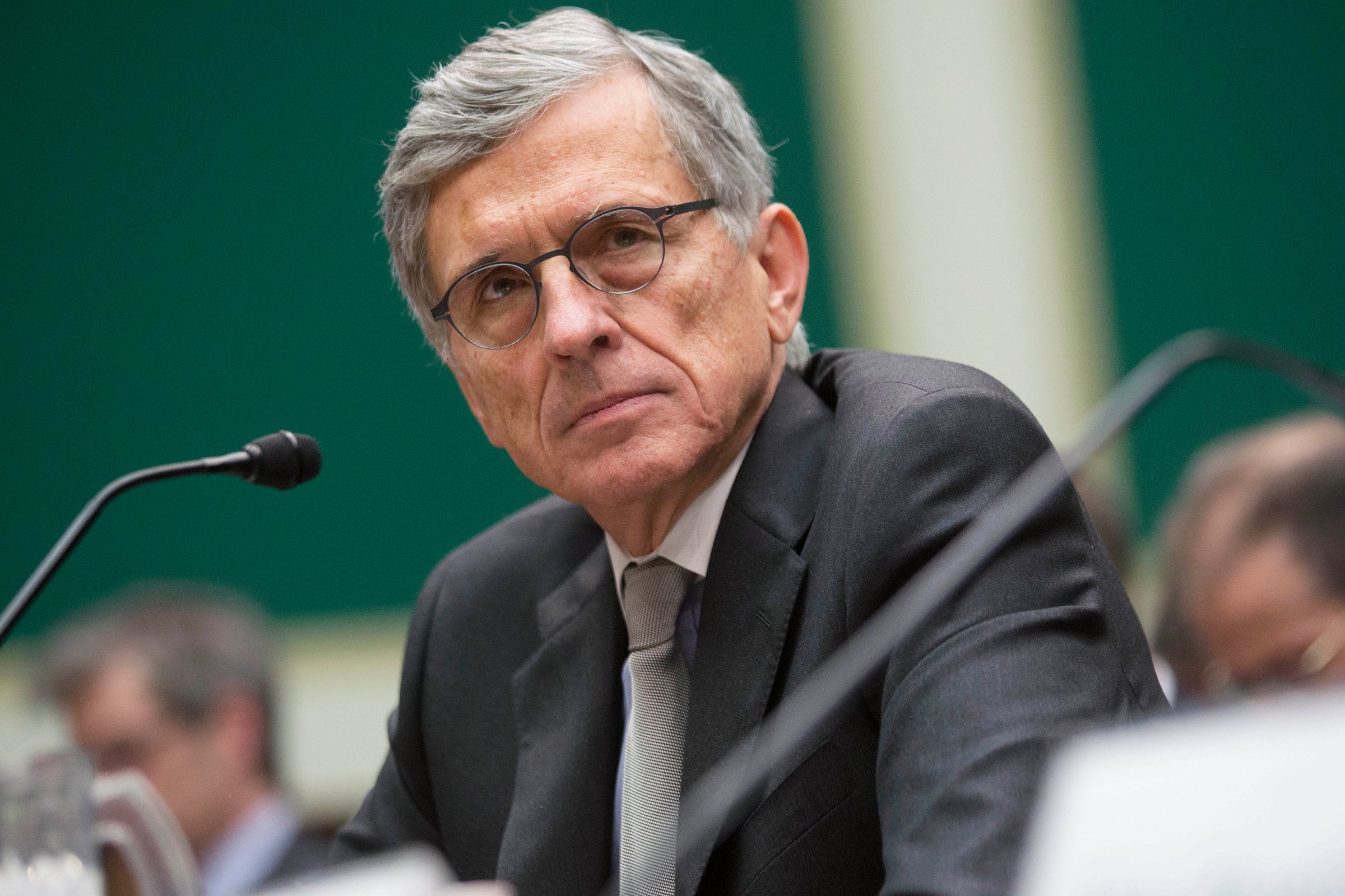
The Federal Communications Commission is poised to vote on the most controversial Internet policy proposal in years, after opponents of the plan — from both sides of the political spectrum — launched a furious last-minute lobbying campaign to influence the outcome.
Thursday’s vote on FCC Chairman Tom Wheeler’s new Open Internet proposal has become a flash point in the intensifying public debate about “net neutrality,” the principle that broadband providers like Comcast and Verizon should treat all Internet traffic equally.
Wheeler, a former venture capitalist who’s only been on the job for six months, finds himself squeezed in a vice-like grip between net neutrality advocates and public interest groups, who argue his rules don’t go far enough, and industry giants and their allies on Capitol Hill, who oppose net neutrality regulations altogether.
Both sides warn that the very future of the Internet — which has spawned a generation of technological innovation and billions of dollars in economic growth — hangs in the balance. The fundamental question is whether broadband regulation should move in a direction that treats Internet service more like a utility and less like a premium service.
Net neutrality advocates have been camping out for days in front of the FCC’s office, which has struggled to maintain open phone lines under a torrent of calls. Wheeler, an avowed supporter of Open Internet principles, came out to chat with the protestors on Wednesday morning, and was even photographed wielding a “Honk for the Open Internet” sign.
Thursday’s vote wouldn’t enshrine the new rules, it would only approve what’s called a “notice of proposed rulemaking” (NPRM) making the draft proposal available for public review, and trigger several months of public comment. Wheeler hopes to have the new rules in place by the end of the year. The FCC’s meeting starts at 10:30 a.m. on Thursday.
Net neutrality advocates want Wheeler and his colleagues to reclassify broadband companies under Title II “common carrier” provisions of the Communications Act that have governed traditional phone companies for decades. Such rules would subject the broadband companies to tighter regulation.
“We urge the FCC to use its clear authority under Title II of the Communications Act to reclassify the transmission component of broadband Internet access as a telecommunications service,” thirty-six U.S. lawmakers wrote in a letter to the FCC on Wednesday. “Recognizing our nation’s communications providers as common carriers under the law is common sense.”
The nation’s largest broadband companies strenuously oppose such reclassification, arguing that it would “threaten new investment in broadband infrastructure and jeopardize the spread of broadband technology across America, holding back Internet speeds and ultimately deepening the digital divide.”
“Reclassification of broadband Internet access offerings as Title II — telecommunications services would impose great costs, allowing unprecedented government micromanagement of all aspects of the Internet economy,” twenty-eight CEOs including Lowell McAdam of Verizon, Randall Stephenson of AT&T, Robert Marcus of Time Warner Cable, and Brian Roberts of Comcast, wrote in a letter to the FCC. “Under Title II, new service offerings, options, and features would be delayed or altogether foregone. Consumers would face less choice, and a less adaptive and responsive Internet.”
Wheeler’s plan would reportedly allow broadband providers to strike special deals with Internet companies for preferential treatment — sometimes called “paid prioritization” — in the “last mile” to consumers’ homes. Such Internet “fast lanes” would threaten innovation, net neutrality advocates argue, because they would put Internet startups — the next YouTube, Skype or Netflix, perhaps — at a disadvantage compared to deep pocketed media giants.
In January, a federal court struck down most of the FCC’s 2010 Open Internet order prohibiting broadband providers like Comcast and Verizon from blocking traffic like Skype or Netflix on wired networks or putting them into an Internet “slow lane.” (Comcast is currently the only broadband company bound by the Open Internet order, as a result of an agreement it made with the government as part of its purchase of media giant NBC Universal.)
Wheeler’s plan — which was leaked to the press two weeks ago — would allow companies to strike paid-prioritization deals as long as they acted in a “commercially reasonable manner subject to review on a case-by-case basis.” It’s unclear what kind of financial agreement would be considered “commercially reasonable” because Wheeler’s draft proposal hasn’t even been made public.
Last week, more than 100 Internet giants and startups sent a letter to the FCC expressing alarm over Wheeler’s proposed net neutrality rules. In response, Wheeler wrote that he has “made clear that if someone acts to divide the Internet between ‘haves’ and ‘have nots,’ I will use every power at my disposal to stop it, including Title II. I will not allow some companies to force Internet users into a slow lane so that others with special privileges can have superior service.”
In the wake of an intense backlash from Internet giants, startups, venture capitalists, public-interest groups and consumers, Wheeler modified his draft proposal to make Title II reclassification a more realistic option, a FCC official told TIME earlier this week. But any proposal that doesn’t include strict safeguards preventing the largest broadband giants from establishing what net neutrality advocates consider to be a “two-tiered Internet” is unlikely to quell the firestorm.
More Must-Reads from TIME
- Donald Trump Is TIME's 2024 Person of the Year
- Why We Chose Trump as Person of the Year
- Is Intermittent Fasting Good or Bad for You?
- The 100 Must-Read Books of 2024
- The 20 Best Christmas TV Episodes
- Column: If Optimism Feels Ridiculous Now, Try Hope
- The Future of Climate Action Is Trade Policy
- Merle Bombardieri Is Helping People Make the Baby Decision
Contact us at letters@time.com